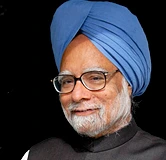The nation mourns the loss of Dr. Manmohan Singh, one of India’s most revered statesmen and economic reformers, who passed away at 92 on the evening of December 26, 2024, at the All India Institute of Medical Sciences (AIIMS), New Delhi.
Dr. Manmohan Singh, renowned for his humility and intellectual brilliance, was admitted to AIIMS in critical condition around 8 p.m. after suffering a sudden loss of consciousness at home. Despite rigorous medical intervention, he was declared dead at 9:51 p.m., as confirmed by an AIIMS bulletin. He is survived by his wife, Gursharan Kaur, and three daughters.
Dr. Manmohan Singh’s legacy extends beyond his two terms as Prime Minister (2004-2014) during the Congress-led United Progressive Alliance (UPA) government. As Finance Minister under Prime Minister P.V. Narasimha Rao, Dr. Singh spearheaded the historic economic reforms of 1991, which dismantled India’s socialist-era economic model and ushered in a new era of liberalization, globalization, and privatization. These reforms laid the foundation for India’s economic trajectory, transforming it into one of the fastest-growing economies globally.
President Droupadi Murmu hailed him as “one of the greatest sons of Bharat,” emphasizing his unparalleled contributions to Indian economic policy and public service. “Dr. Manmohan Singh Ji will always be remembered for his unblemished political life, utmost humility, and critical contributions to reforming the Indian economy,” she said in a tribute on X (formerly Twitter).
Prime Minister Narendra Modi expressed his deep sorrow, acknowledging Dr. Manmohan Singh as a distinguished leader whose wisdom and humility left an indelible mark on India’s governance and policymaking. “Rising from humble origins, Dr. Singh became a respected economist who profoundly shaped our nation’s economic policies,” PM Modi stated. “As Prime Minister, he worked tirelessly to improve the lives of millions.”
Congress leaders, including Sonia Gandhi, Rahul Gandhi, and Mallikarjun Kharge, paid heartfelt tributes to their mentor and colleague. Sonia Gandhi and Priyanka Gandhi Vadra visited AIIMS upon hearing the news of his hospitalization, while Rahul Gandhi described Dr. Singh as a “gentle intellectual and humble soul who embodied India’s aspirations.”
Congress President Mallikarjun Kharge lauded his immense contributions to nation-building, stating, “His policy of economic liberalization and rights-based welfare initiatives created a burgeoning middle class and lifted millions out of poverty. History will judge him as a visionary statesman and economist of unparalleled stature.”
Dr. Manmohan Singh’s tenure as Prime Minister was marked by significant policy initiatives, including the Mahatma Gandhi National Rural Employment Guarantee Act (MGNREGA) and the Right to Information Act (RTI), which empowered millions and strengthened the fabric of Indian democracy. His leadership was characterized by a quiet resolve, a focus on inclusive growth, and a commitment to upholding democratic values.
Beyond his political achievements, Dr. Manmohan Singh’s academic and professional journey was equally inspiring. Born into modest circumstances in Gah, now in Pakistan, he pursued higher education at esteemed institutions, including Cambridge and Oxford. A celebrated economist, he served as the Governor of the Reserve Bank of India and held prominent roles in international financial institutions before joining politics.
National Mourning Declared on the sad demise of Dr. Manmohan Singh
As a mark of respect, the Union government declared a seven-day national mourning, during which the national flag will fly at half-mast. All official functions have been cancelled, and the Union Cabinet will convene on Friday morning to pass a formal condolence resolution. Dr. Singh’s last rites will be conducted with full state honours.
Dr. Singh’s demeanour—marked by humility, intellect, and integrity—won him admiration from across the political spectrum. His efforts to bridge the gap between economic theory and governance made him a rare figure who excelled in both academia and public service.
As the nation bids farewell to this towering figure, his life and work continue to inspire generations of Indians. His legacy as a reformer, statesman, and gentleman politician will remain etched in the annals of Indian history.






